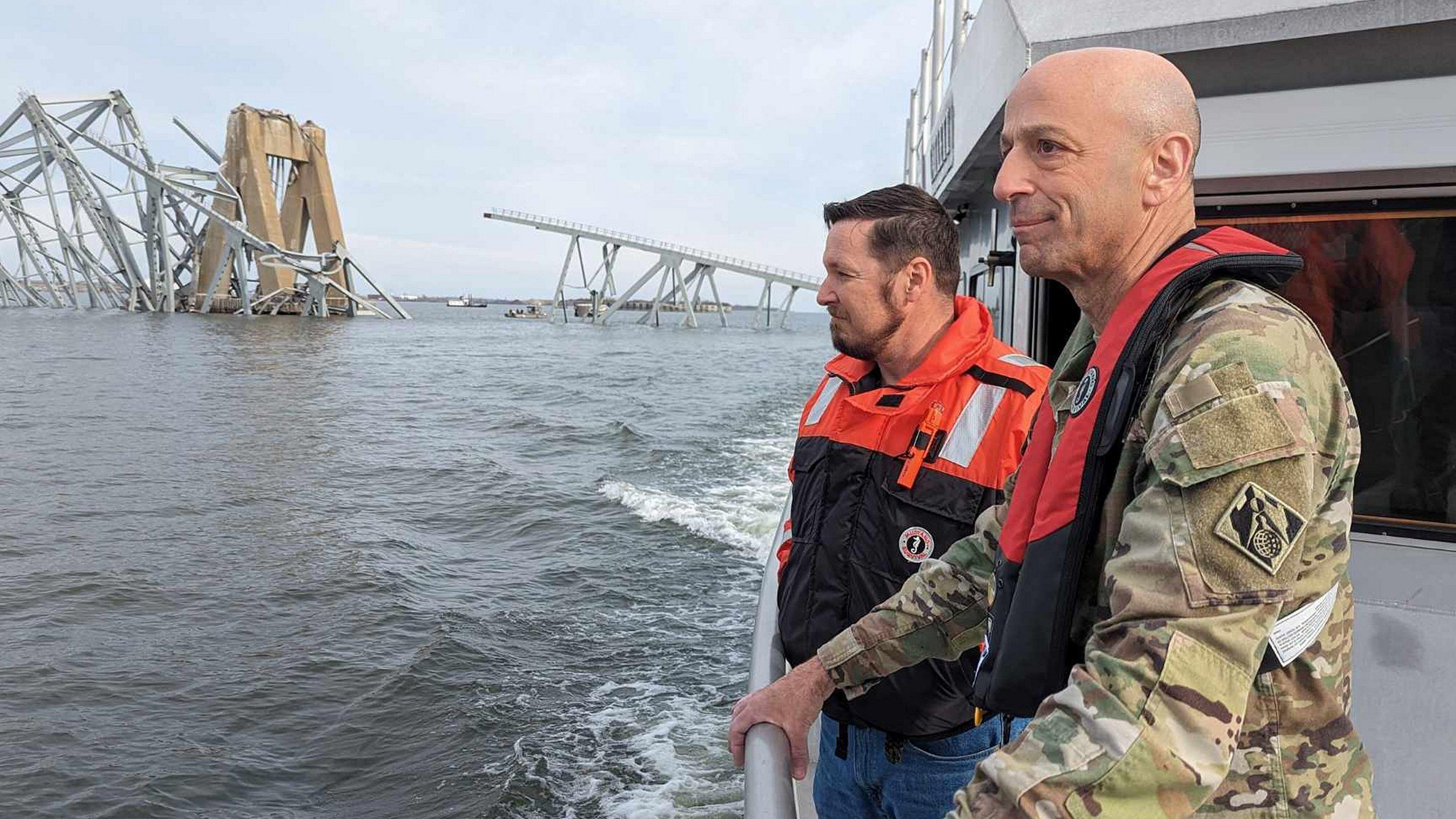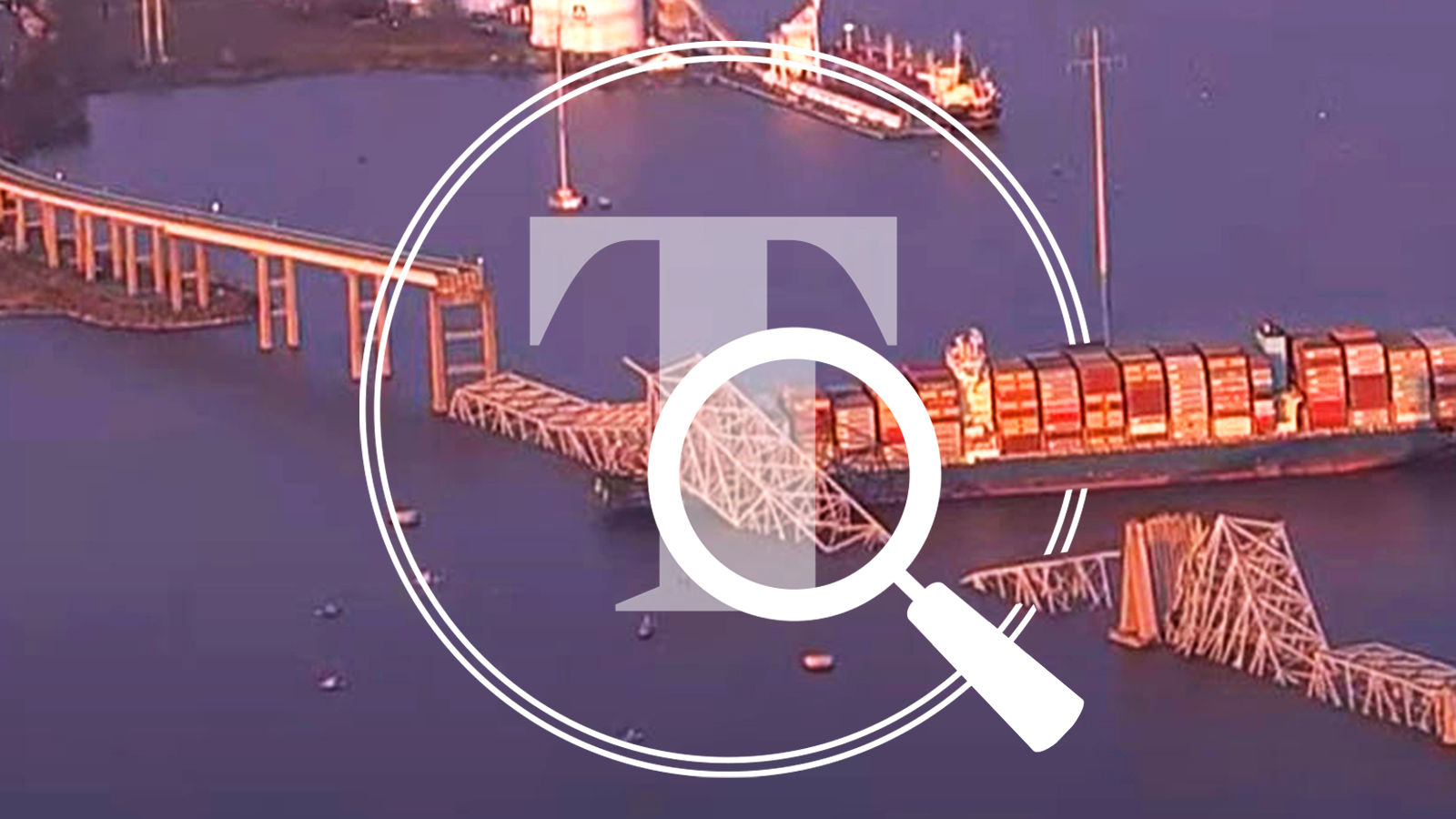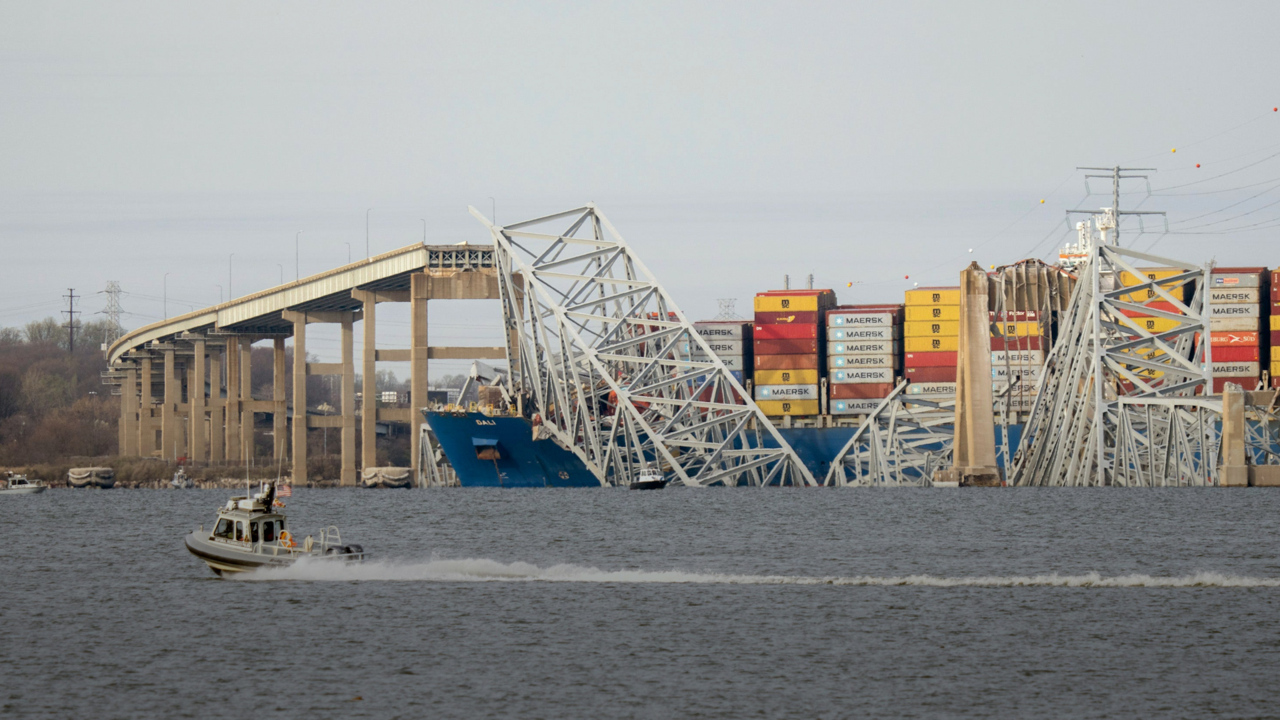Four US military cargo ships on standby for war are among the vessels trapped in Baltimore as concerns grow about the effect of the bridge collapse on the local economy and global supply chains.
Nearly a dozen ships will be unable to leave the port for an indefinite period and shipping traffic has been redirected until the wreckage of the Francis Scott Key Bridge is removed.
The military vessels are reserve rapid-reaction cargo ships, part of the US Military Sealift Command, a vital organisation that provides back-up for US fighting units around the globe.
• Disaster likely to be ‘biggest marine insurance loss in history’
Last year 850,000 new vehicles arrived in the US through Baltimore. It handled 52.3 million tons of foreign cargo worth




